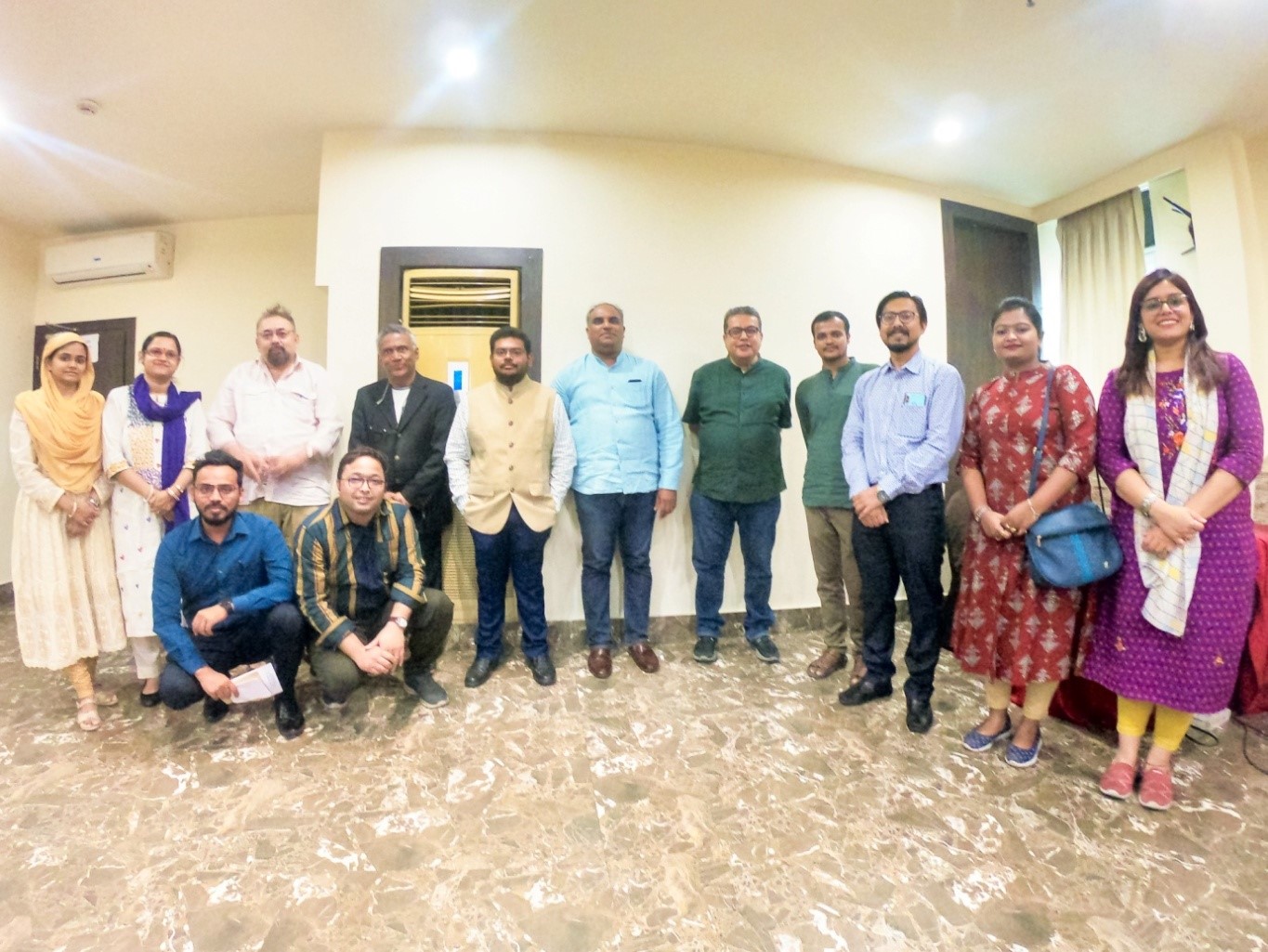
Collaborating for Indigenous Health in India
Designing culturally appropriate healthcare interventions for the
indigenous people of India.
Passion for evidence-based healthcare is at the heart of our newest JBI Collaborating (JBIC) Entity in India, Evidence Synthesis and Implementation for Indigenous Health: A JBI Affiliated Group, whose host organisations are the Manbhum Ananda Ashram Nityananda Trust (MANT) and the Centre for Public Health Research (CPHR). Convenor Dr Nirmalya Mukherjee and the team have started with an incredible amount of enthusiasm.
Evidence Synthesis and Implementation for Indigenous Health: A JBI Affiliated Group is located in West Bengal, one of India’s most populous states. This region faces a range of healthcare concerns including malnutrition, maternal and child health, infectious diseases, non-communicable diseases, and mental health. Indigenous people are lagging behind their non-indigenous counterparts in all health indicators, and they have been suffering from diseases disproportionately.
Dr Mukherjee explains: "Indigenous people make up 8.6% (104.2 million) of India’s 1.3 billion population, and suffer from a quadruple burden of diseases, including communicable and non-communicable diseases, malnutrition, mental health, and addictions, complicated by poor health-seeking behaviour). Customised health interventions are the need of the hour since they have different healthcare needs, cultures, customs and social systems.”
To address these healthcare disparities, the new JBI Affiliated Group will focus on evidence implementation, as well as conducting evidence syntheses aimed to be helpful for designing culturally appropriate healthcare interventions for the indigenous people. “It is a sad truth that we have plenty of evidence for healthcare for the populations easiest to engage in study, while there is a widely accepted paucity of evidence for indigenous people regarded as the harder-to-study community", says Dr Mukherjee. "Our centre will add the equity aspect of evidence generation, intersectionality synthesis and implementation."
The establishment of the centre is crucial to meet the 2030 Sustainable Development Goals and address healthcare needs of the country’s indigenous communities. Dr Mukherjee believes that the centre is the first of its kind in the country, dedicated to people who are regarded as the most vulnerable section of society. "It is our belief that the centre will provide the necessary evidence to bridge the gaps that exist between indigenous people and non-indigenous populations in regard to healthcare.”
We are thrilled that Dr Mukherjee and team see that by affiliating with JBI and the JBI Collaboration, and adopting JBI methodology, their researchers will have the network, skills and resources to improve much-needed health programming for indigenous health.
For further information on Evidence Synthesis and Implementation for Indigenous Health: A JBI Affiliated Group, visit their webpage on the JBI website, or their webpage hosted on the CPHR/MANT website.